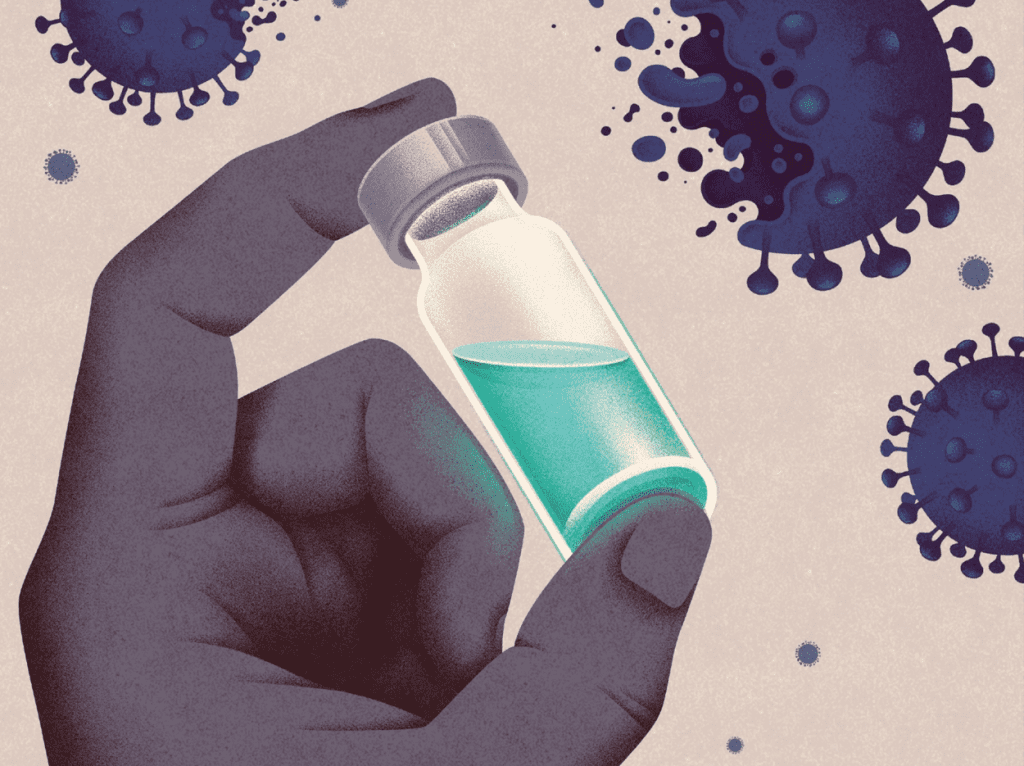
This renowned adage is not just a hollow moral saying, but it finds justification because of numerous events that occurred throughout history. From the fight against slavery to the fight against global warming, a world-wide support has always helped further the cause, far beyond what it could otherwise. Hence, today, when faced with one of the worst pandemics in the history of mankind, we once again desperately seek the world’s co-operation to fight this horrifying virus. One of these has been the TRIPS Waiver.
While the call for the TRIPS waiver has been loud, something many people forget is the massive economic disparity all over the world. This has a pronounced impact on all global decisions, and the TRIPS waiver is no exception. The TRIPS waiver is a monumental move, but will it really be the magical solution to our current problems? Will the waiver even with popular support live up to its touted profitability wading through all the anticipated hurdles that exist? Will it help humanity of its predicament?
United we stand, divided we fall.
Aesop
Introduction
The Trade-Related aspect of the Intellectual Property rights (TRIPS) Agreement is a universal agreement between its signatories, and members of the World Trade Organisation, to abide by certain standard regulations and guidelines with respect to intellectual property rights like patents, copyrights, trademarks etc. It was established in order to bring about harmonisation in the IP laws around the world. It is a seminal agreement on IPR and has a prominent role in introducing IPR into international trade.
The TRIPS waiver was a proposal put forth by India and South Africa on 1st October 2020, to effectuate the waiver of certain provisions, namely Sections 1, 4, 5, and 7 of Part II of this very Agreement, for a certain mutually agreed period of time at which majority of the world would have acquired immunity. Section 1 deals with Copyrights and Related Rights, Section 4 elaborates on Industrial designs, Section 5 expounds upon Patents and Section 7 expands on Protection of Undisclosed Information. The articles within these sections enunciate the kind of protection that is guaranteed and the kind of rights that are conferred. It is pertinent to note that the extent of the waiver was proposed to be limited to the containment, treatment and prevention of COVID-19. The waiver emphatically averred that in order to effectively produce vaccines and other medical equipment, a regime free of patent violation threats is imperative. At this point the pandemic had already taken 10 lakh recorded lives round the globe and infected 33 crores.
It rightly states that the virus, unbiased in itself, has not been so unbiased in its impact on all countries and it brought to the fore the glaring economic gap between the developed and developing countries. While national lockdowns in most countries have meant financial debacle for the latter the former have survived for the most part. Covax- the Covid-19 Vaccine Global Access programme and Access to COVID-19 Tools (ACT) Accelerator provide vaccine doses to countries which face shortages. The disparity is evinced by the fact that a developed country like US has already vaccinated about 44.7 % of its population and has purchased more than 600 million vaccine doses, while a developing country like India is still striving to finish vaccinating its elderly population. This waiver was not proposed out of the blue, it was a result of big global pharmaceutical corps restricting the flow of vaccines despite their achievement being a result of largely public funding.
Right now, India is in dire need of vaccines and all the possible help it can garner to curb the virus’s rampant spread and any obstacle in the form of IPR infringement suits are not helpful. Not only India, several countries, especially third-world countries, are facing a severe shortage of vaccines. It is not due to the lack of production by the licensed companies, but the limited supply is just not able to meet the unending demands and therefore there is a need to increase the manufacturing units which can happen only through the waiver.
In anticipation of the aggressive patenting that might take place once a vaccine is approved, many members of the WTO began issuing compulsory licenses to their endemic pharmaceutical and related companies. Since at the time no known efficient vaccine had been developed, this proposal was made in anticipation of the development of vaccines, diagnostics and therapeutics, and the apprehension of their availability at prices not affordable for everybody in a competitive world aware of IPR.
Waiver, not a solution?
Many countries with big pharmaceutical corporations like the United States, in the European Union, Switzerland, Japan, Canada, Norway, and Brazil among others, vehemently opposed this proposal, claiming that IPRs were never a threat to sufficient and affordable medical treatment to all, and that the waiver wasn’t a solution. TRIPS already offer flexibilities via the Doha Declaration and these inherent flexibilities are sufficient was emphatically argued. The flexibilities include the issuing of compulsory licenses, which allows the use of a patented invention without the consent of the patentor. Article 31bis further allows countries to produce medicines and export them to countries that cannot do so themselves at an affordable price. They were also apprehensive of its apparent unknown impact.
They further averred, that even if this will solve the problem eventually, that would not be the immediate effect of such a waiver, as it is not necessary that every developing country, especially third-world countries would have the infrastructure or the technological knowledge to develop similar vaccines, medicines, or equipment as per need. They would require aid and technological transfer for which added pressure and incentives will have to be given and more time will be required, as the waiver doesn’t impose the transfer of technology. The need of the hour is the prompt production and distribution of vaccines not eventual and hence, this solution is no solution at all, by the time the waiver gets approved and the vaccines are made and distributed the pandemic would already be in its concluding stage.
While they are grossly inaccurate about the futility of IPR in preventing access, they are not incorrect about the time it will take for such a waiver’s effect to manifest. The havoc wreaked by HIV-AIDs, in 2003 also engendered similar circumstances and the WTO had waived certain obligations then, in fact, the Article 31 bis was a culmination of that fiasco. Although a waiver was granted then, it was not without some strict requirements which were cumbersome to implement, which ultimately resulted in none of the countries actually effectively using the waiver.
Nonetheless, it is indisputable that it might take time for the waiver to be profitable, but it will have positive ramifications eventually. Further, the issue with Art. 31bis is that it mandates that the country importing the medicines and related products, must have no manufacturing capacity or insufficiency thereof, and sometimes the problem is there just isn’t efficiency despite its capacity. Further import and export of goods is not only a cumbersome but also a long process, thereby, the flexibilities referred to are not enough in comparison either.
Hence the question is, what would be so detrimental to the developed countries for them to outrightly oppose such a move? The answer is only the enormous profits they could make via exclusive IP rights on COVID-19 related medical services. Big Pharma, comprising Pfizer, Moderna, and AstraZeneca are some of the major pharmaceutical companies in whose favour the TRIPS waiver is being opposed who strongly believe that IP protections will only further efficient R&D on the matter. They are touted to make a monumental profit of 21.5 billion in 2021 alone, and the pandemic is yet to see its end and the world is yet to get completely vaccinated. What is worse is, the Director Generals’ obliviousness to the proposal ensuing from the plight of her own country’s people. Therefore, whether a magic move or not, writhing with uncertainties or not, there is much more at stake by not approving this waiver than by approving it.
History is Proof

Intellectual Property Rights have been potential barriers for effective provision of medical services, like during the spread of HIV-AIDs virus, and history tends to repeat itself. India has a precedent to quote in this regard; when it was denied the technology transfer to make vaccines for Hepatitis B, it overcame this IPR hurdle and made a recombinant vaccine variant of its own, which is now used world-wide for protection against the disease.
Patents on medicines for diseases like HIV, TB, cancer have only made them inaccessible to the majority of the population of middle- and-low-income countries. IP protection has led to Africa being denied chemical reagents required for diagnosis. Gilead Sciences had patented remdesivir, and denied a large population from accessing alternate suppliers at more reasonable prices. As the research on COVID-19 keeps progressing there is no dearth of medicinal products and services on which IP protection can be claimed, restricting control on them. The IP monopoly also grants them the right to restrict sale to a particular geographic location.
The IPR protection denies access by virtue of exclusivity as it grants them the right to charge high prices for their service and also denies the public the right to a second opinion. Further, the patented substances are then worked upon only by those patentors, which can lead to mundane drudgery with no addition of a new perspective which can inter alia be a hindrance to progress.
Hence, that the TRIPS waiver is required is irrefutable, for this waiver to have any impact at all, the countries also need to make apt changes to their domestic IP legislations in accordance to the waiver. With such a strong opposition to the waiver by some of the most influential and developed countries, the support of 100 developing countries, 400 government officials across the EU, including the World Health Organisation’s Director-General for the TRIPS waiver was seemingly irrelevant. It was only on 6th May that US, extended its support to the waiver, giving it the required push to be considered for negotiation by the other opposers. While it did agree to support the waiver, it limited this support with respect to vaccines and left out medical products like diagnostic kits, medical masks, other personal protective equipment and ventilators, which are equally essential in our battle against COVID-19, in its statement of solidarity.
Conclusion
The TRIPS waiver requires a complete consensus for it be to passed, hence global support is of utmost essence for its approval. It is of the paramount importance that this waiver be implemented in order to save lives, in the name of humanity. The longer it takes, the longer the pandemic persists, and the greater the economic divide grows; international co-operation is imperative in order to bridge the glaring economic disparity.
Whether it is a magic move or a hopeless attempt, only time will tell, but we must also make simultaneous efforts to deal with the glitches in the system not associated with IP law regime. Nonetheless, we must help each other in this dark hour, even if its efficacy seems bleak, because the economic harm that it may cause in case of inefficacy is trivial in comparison to the kind of good it will do in case it does turn out to be advantageous. We must fight the virus together; it will not have been eradicated from anywhere until it’s been eradicated from everywhere; vasudhaiva kutumbakam.